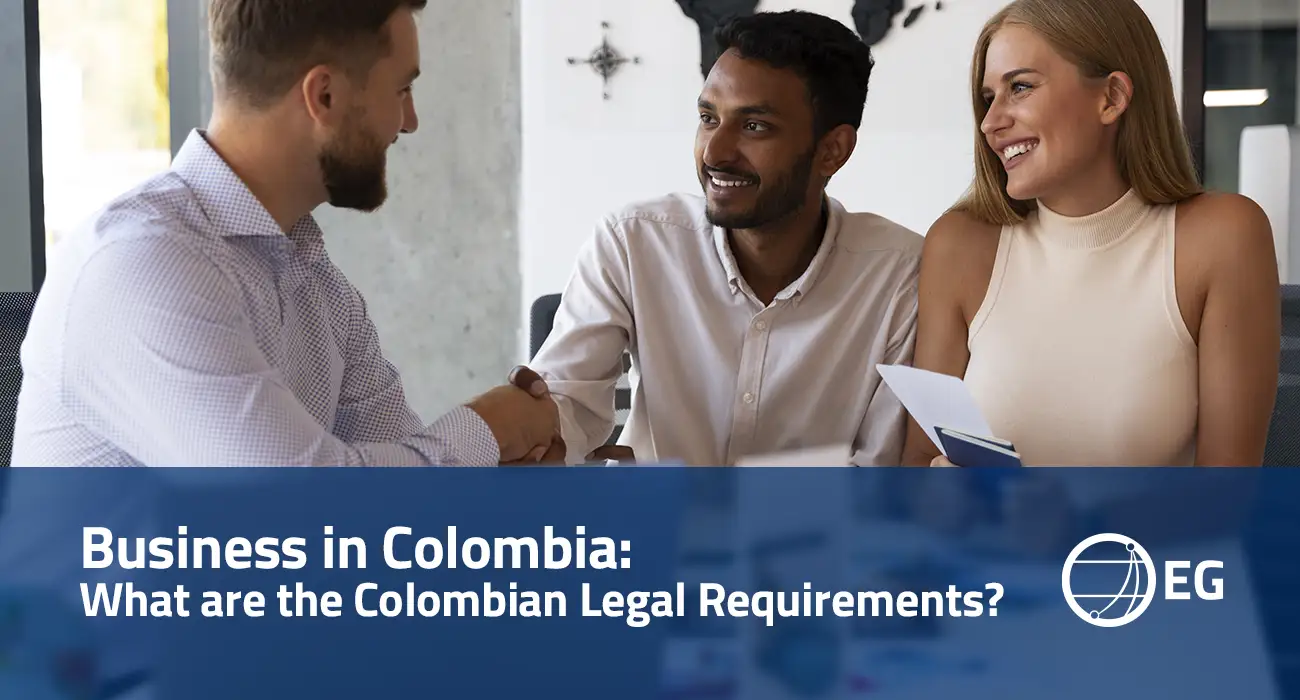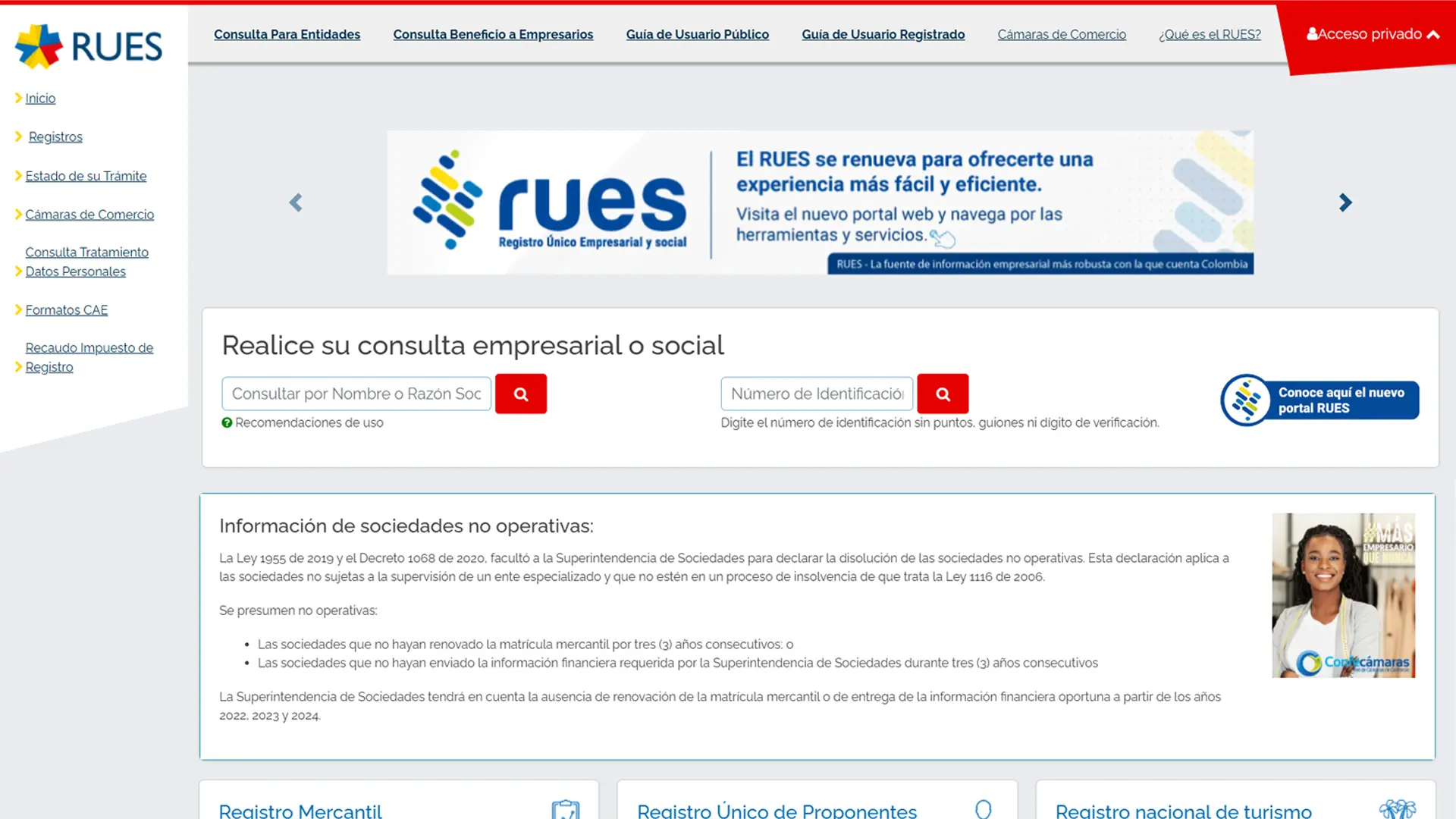Table of Contents
Before setting up your business in Colombia as a foreign investor, it’s crucial to understand all of the legal requirements.
At expatgroup, our clients constantly ask us the best way to legally structure their business, navigate DIAN for their tax number, and deal with the Colombian Chamber of Commerce. With this in mind, we’ve compiled a comprehensive list of the most important legal steps to incorporate your Colombian business.
In this blog, you’ll learn about…
1. Draft a letter stating the power of attorney
Drafting a letter that states power of attorney (POA) is the first step to legally creating your Colombian business. This letter tells the Colombian government who your legal representative will be should it be required.
Stating your power of attorney letter is necessary, for instance, if you and your shareholders are outside of Colombia and need legal representation to decide on your behalf. This letter will be drafted so the Colombian Chamber of Commerce will recognize your official company bylaws.
2. Name your business
Regarding intellectual property, nothing is more valuable than your company’s name.
Once you’ve established your legal representation, the name of your business must be registered through the Single Business Register (RUES). The Colombian government’s official database contains all the names of officially listed Colombian companies. It will confirm whether you can use your chosen name or not.
Naming your business is not a process that should be taken lightly, especially if you plan to use a Spanish name. It’s always wise to consult a brand consultant or a translator to understand the significance of names in both English and Spanish before deciding.
You can book an appointment for a free consultation to discuss the process of deciding your business’ name before formally registering it.
3. Define your business’ legal framework
When creating a Colombian company, several legal frameworks must be considered, each suiting a different business model, product, or service.
To be exact, there are three main legal structures for you to choose from:
Get the RUT in Colombia for individuals
The RUT (Registro Único Tributario) is the DIAN's system for identifying and classifying individuals and entities in the tax system based on their economic activities, assets, and contributions. Click the button for professional assitance!
4. Register with the Colombian Chamber of Commerce and obtain tax identification (NIT)
Registering with the Colombian Chamber of Commerce is fairly straightforward.
Essentially, the Chamber of Commerce is Colombia’s business regulator and must administer the formal creation of Colombian companies. To do this, they need the following information:
Your letter stating power of attorney
This is necessary for legal representation in Colombia before DIAN.
Business Activities and Company Statutes
Documentation stating company bylaws and outlining your company’s business activities.
Shareholder information
Documentation of who is your company’s shareholders, their business involvement, and how many shares they have
With all this information, the Chamber of Commerce will formally recognize your company within 24 hours. You are free to begin business operations as they review your legal documentation.
Once the Chamber of Commerce legally lists your business, you must get the Colombian tax identification (NIT) number through DIAN. If you’re unsure how to navigate the DIAN website to apply for your NIT number correctly, reach out to us, and we’ll be happy to walk you through the steps as part of our business creation service.
5. Legalize your Investment
The Bank of the Republic of Colombia is the country’s highest economic regulation authority. Through decrees such as Decree 2080 of 2000, this entity has established specific rules for foreign investments entering the country.
Ignoring these rules, such as audits or fines, could negatively affect your business. Contact us if you have any questions about how to legalize your investments in Colombia.
6. Open your Colombian bank account
Lastly, with your NIT number and the formal listing of your new Colombian company, you’ll be eligible for a Colombian business bank account.
There are several prominent Colombian banks, including:
For Foreign Direct Investments, it is advisable to open a Brokerage Account.
Creating a bank account is not mandatory but is the most recommendable way to manage your company’s money easily.
When choosing your Colombian bank, it’s always best to find out their areas of financial specialization, international presence, and interest rates. If you’re unsure which bank’s best for your business, book a free consultation with expatgroup right now.
Book a business creation consultation with expatgroup.co today
Before taking on a new business venture in a foreign country, knowing your legal requirements, visa rights, and, most certainly, the language is essential. At expatgroup.co, we’ve helped hundreds of foreign businesses like yours start, grow, and prosper into established Colombian companies.
For information on what makes our business creation and consultancy service so special or any advice about the content of this article, book a meeting with us here and start your Colombian enterprise adventure today.
Get a quote now
We offer expert guidance on immigration processes, business opportunities, housing, and investment, ensuring you have all the resources for a successful and smooth transition to life in Colombia.

Comments
Share your experience or question.
Your comment could inspire and help others who dream of living in Colombia.








